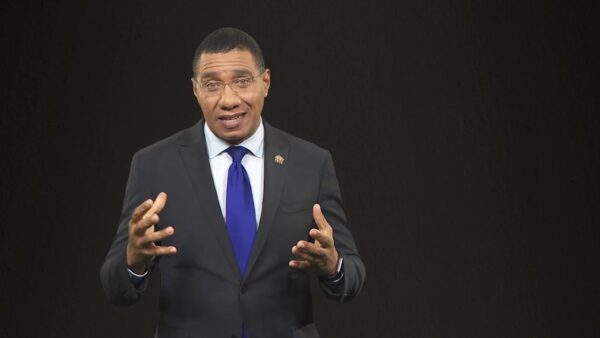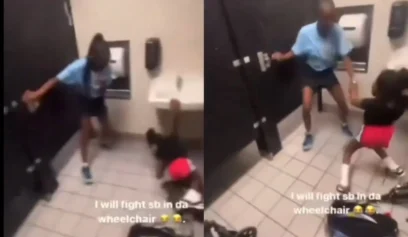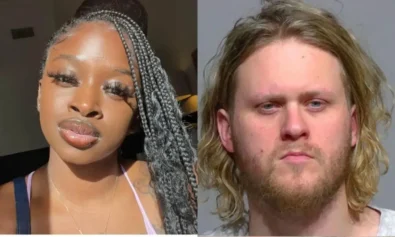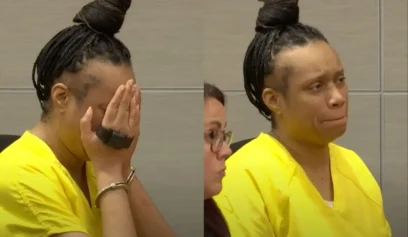Jamaica’s prime minister and descendants of the country’s indigenous people are at odds over the community’s political status.
The Maroons, the descendants of Jamaica’s first enslaved Africans and Taino Indians, believe they are a sovereign state. Jamaica Prime Minister Andrew Holness rejecting the claims has barred the country’s funding to the community, initiating a war of words with one Maroon chief.

“Jamaica is a unitary sovereign state. There is no other sovereign authority in Jamaica other than the Government of Jamaica,” Holness told reporters during a Jan. 9 press conference. “Under my leadership, not one inch of Jamaica will come under any other sovereign authority.”
Holness’ verbal proclamation was in response to questions from reporters about a leaked document that instructed government entities not to engage with or fund Maroons that claimed sovereignty. Three days earlier, the annual Accompong Maroon Festival in St. Elizabeth, Jamaica, was interrupted by gunfire. Accompong Maroon Chief Richard Currie said it resulted from a mix-up between law enforcement and the Ministry of Culture, Gender, Entertainment & Sport.
The day before the festival, the Jamaica Constabulary Force (JCF) issued a warning about the event stating that it violated the country’s disaster declaration in response to COVID-19 and was not approved by the Ministry of Health and Wellness.
“We are therefore warning persons not to attend the event, as such action will constitute a breach of the COVID-19 regulations,” JCF said in a Jan. 5 statement. “The Police are also calling on the organizers of the event to comply with the instructions given by the Ministry of Health and Wellness and to cancel the planned event.”
However, Culture Minister Olivia Grange told The Gleaner on the day of the event, the celebration had been approved by the Office of Disaster Preparedness and Emergency Management (ODPEM). She told the local paper that JCF had not been informed and was deployed to patrol the event. The miscommunication turned tragic, resulting in the death of one man and the injury of five others, including two children.
According to reports, an undercover police officer discharged his gun while trying to intervene in a dispute between two men at the festival.
The festival, which is celebrated with traditional African dances, a pilgrimage and other celebratory activities, marks the signing of the 1739 peace agreement between Cudjoe, leader of the Maroons, and the British Empire.
The first Maroons in Jamaica were the enslaved that freed themselves from their Spanish capturers and hid in the islands’ mountains. As more people in bondage ran to freedom, the Maroon population grew. Currie said they were also joined by Taino Indians, whom the Spanish also enslaved.
According to Harvard’s Maroon Sovereignty Project, the Maroons aided Britain in overtaking the Spanish on the island but later turned on the British, leading to eight decades of tensions. The British ended the Maroon-British wars with the Leeward and Windward Treaties of 1739, decades before Jamaica gained independence from Britain in 1962.
The agreement guaranteed the Maroons’ freedom and land, but the current public squabble between Holness and the Maroons hinges on what else was in the treaty.
Currie said the treaty gave the Maroons their independence before Jamaica and the British near conjoined the two.
“So when one reads the treaty, it’s not hard to see that Jamaican citizens who were slaves at the time under the British Empire had a choice to join the Maroons under Cudjoe or his successors and be protected,” Currie said in an Instagram video. “Those who were fugitives from criminal activities or wanted to disobey the treaty agreement would be returned, similar to how extradition works today.”
University of the West Indies History Researcher Oneil Hall said the treaty did establish the Maroons as an autonomous community — given the freedom to govern itself or own affairs. Oneil said, in a recent op-ed in the Jamaican Observer, that Maroon leaders asked the British to clearly state their connection to Jamaica after the country’s independence, but the British never resolved the issue.
Although the community is autonomous under the treaty, Jamaica should still fund Maroons because its members are still Jamaican citizens, Hall added.
In the past, Holness seemingly has recognized the Maroon community as sovereign. Currie posted a 2019 press release from Holness’ office announcing that the prime minister would be the keynote speaker at the Accompong Maroon Festival. The press release referred to the community as “The Sovereign State of Accompong.” The Atlanta Black Star verified its authenticity.
Currie also released a screenshot of a Facebook post on the same day in 2019 where Holness also referred to the Maroons as a sovereign state. The Atlanta Black Star was not able to retrieve the post.
“On this day 281 years ago, Captain Kojo proudly stood and watched as emissaries of the defeated British forces ascended to Accompong to sign a Treaty that would establish the community as on equal standing with the then British-led Government,” Holness reportedly said in the Jan. 7, 2019, Facebook post.
“The Treaty was between two sovereign nations and surrendered to the Maroons of Accompong Town lands with defined borders and agreed political establishments.”
Jamaican Ambassador to the United States Stephen Vasciannie said both Jamaican and international law refutes the Maroons’ sovereignty claims. Vasciannie, who is also a law professor, said Britain and the colonial House of Assembly in Jamaica had signed legislation that amended the rights of Maroons.
“These laws prevailed over the terms of the treaty and tended to bring the position of Maroons into line with that of other Jamaicans,” Vasciannie said.
He also said although the treaty gave the Maroons their freedom, it never established the community as a sovereign state.
On Jan. 4, Jamaica’s Natural Resources Conservation Authority announced that it would grant a permit for the mining of lands that are part of Accompong, also known as Cockpit Country. Holness had vowed not to mine the area in a Facebook post and video from June 2019. Some of the prime minister’s critics believe that the current quarrel over the Maroons’ status is about the mining plan.
“This just goes to show the downward spiral and fast in which Jamaica is going,” said Facebook User Phoenix Tulloch responding to Holness denouncing the Maroons. “The Maroons have been around for so long and regardless of how they came about they were never yet a problem But why is it now that the Government of Jamaica wants to disrupt them and only because they want to profit from their lands. Sickening.”
According to reports, Holness had a meeting with the leaders of the three other Maroon communities on Jan. 21, but Currie said he was left out. Some Jamaicans have blamed Currie for stirring up the controversy.
However, Currie is not backing down against Holness.
“There are two types of people on the island. Those who are willing to be righteous at all costs and defend their estate from theft and those who remained as house slaves and gatekeepers for the corruption of leaving the Maroons out in 1962,” Currie said in an Instagram video statement. “Each person on this island must decide who are. The world is watching.”
More news from our partners:


